Croatia's Coronavirus Update: 1,649 New infections, 36 Deaths
ZAGREB, 7 April, 2021 - Over the past 24 hours, Croatia has registered 1,649 new cases of coronavirus infection and 36 deaths, and the number of active cases currently stands at 11,361, the national COVID-19 crisis management team said on Wednesday.
There are 1,750 COVID patients in hospitals, 160 of whom are on ventilators.
Since 25 February 2020, when Croatia registered its first case of the infection, a total of 282,548 people have contracted coronavirus, of whom 6,149 have died and 265,038 have recovered, including 1,280 in the last 24 hours.
There are 27,406 people currently in self-isolation. To date, 1,599,453 have been tested, 9,466 of whom over the past 24 hours.
As of 6 April, 526,414 doses of vaccine have been used, and 427,387 people have been vaccinated. Of them, 326,711 people have received the first dose, and 99,027 have received both doses. For 1,649 people, there is no data on which dose they have received.
For more about Covid-19 in Croatia, follow TCN's dedicated page.
Rovinj Tourist Board Provides PCR Tests for Guests in Private Accommodation
April 7, 2021 - In order to promote safe tourism during the pandemic, the Rovinj Tourist Board provides PCR tests for guests staying in private accommodation.
As reported by IstraIN.hr, in order to facilitate the stay of guests in Rovinj and make their stay safer, the Rovinj Tourist Board has decided to ease the situation for private renters and guests, since they need a negative PCR test to avoid quarantine to return home.
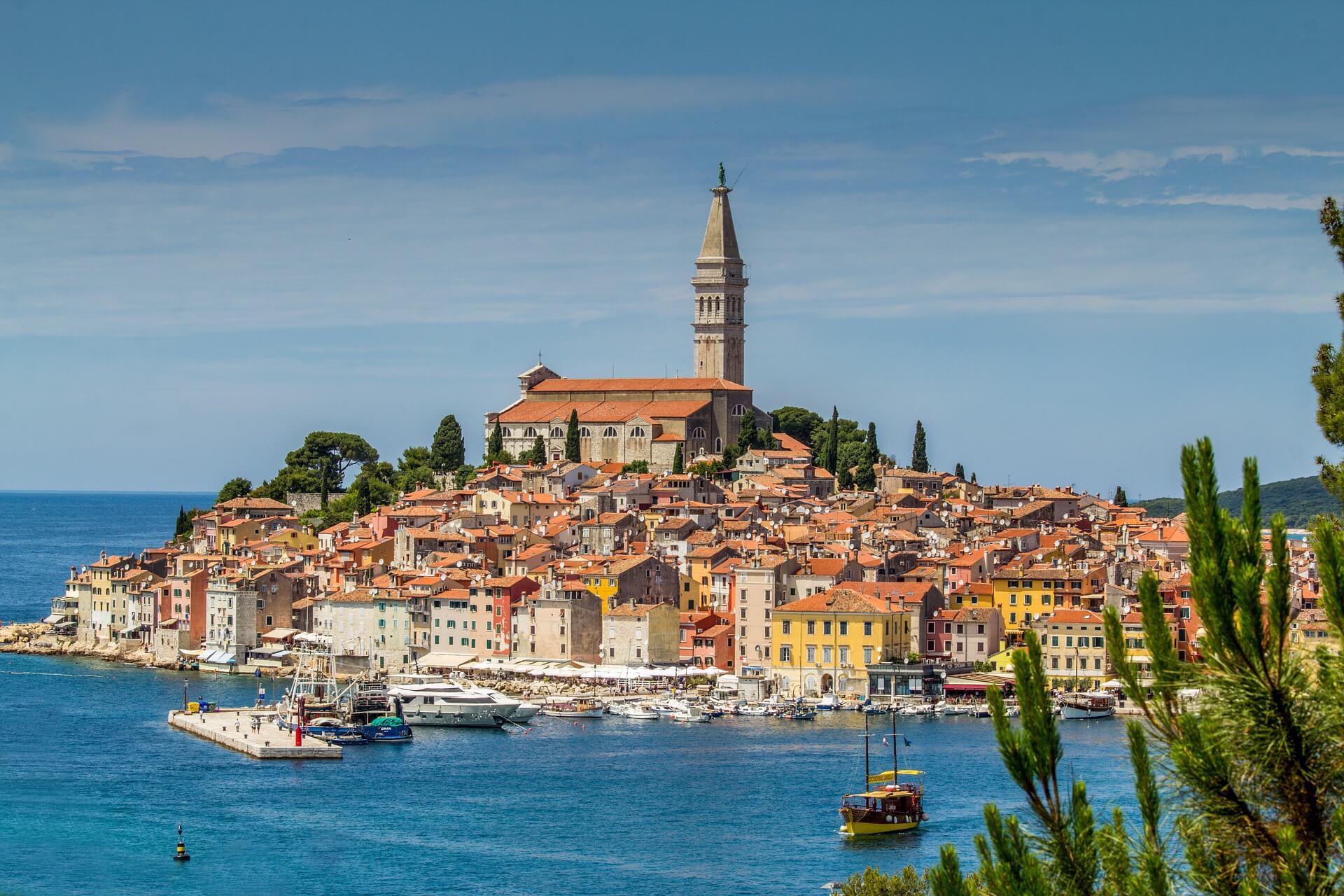
Credit: Gerald Thurner (Pixabay)
Even if new flight routes are being opened and the frequency of these are increasing as the summer season approaches, many of the tourists traveling to Croatia have to deal with the measures imposed in their own countries upon their return. For instance, tourists from many European countries had to cancel their reservations during last summer season due to the quarantine measures imposed by their governments.
As the world was hit by the third wave of the pandemic, many countries were forced to tighten measures further. Among them are numerous European countries such as Germany, which have declared Istria as a high-risk region, despite the fact that Istria is still among the European regions with the lowest incidence of infection.
On that occasion, the Rovinj Tourist Board has provided testing for guests staying in private accommodation and other smaller facilities. Testing is performed in Maistra hotels, and to register guests will need to contact the Rovinj Tourist Board by phone at +385 52 811 566 or e-mail to This email address is being protected from spambots. You need JavaScript enabled to view it..
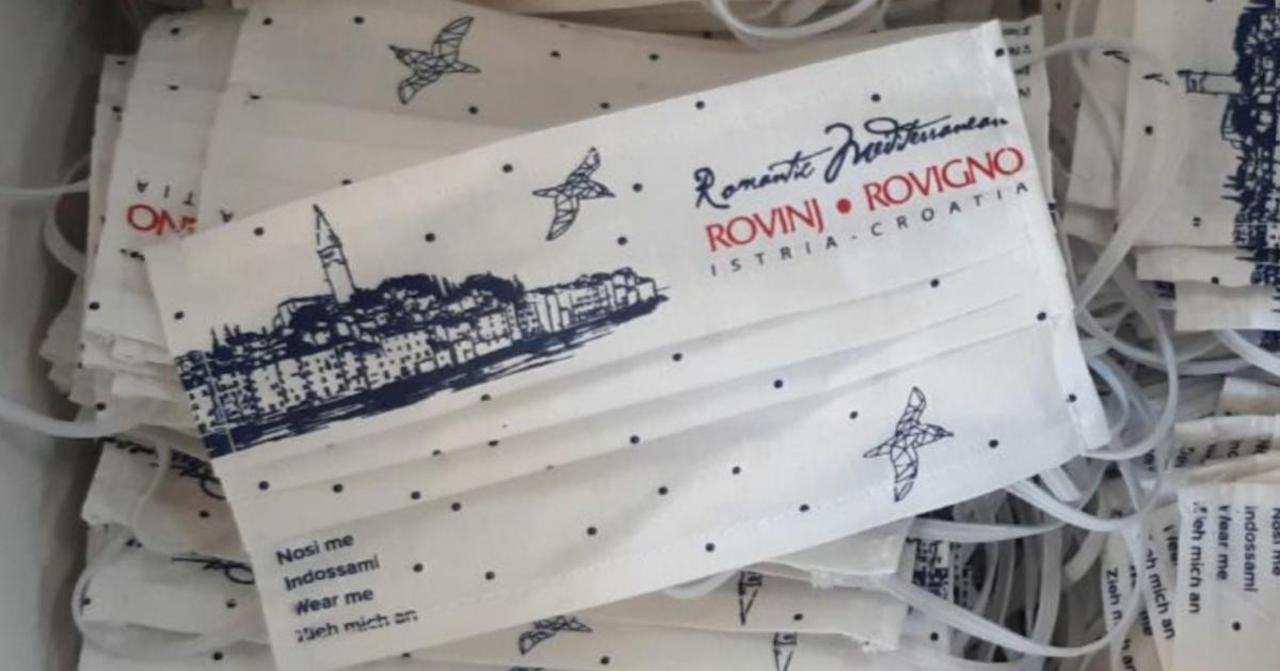
Credit: Rovinj Tourist Board
Last year the Tourist Board designed its own protective canvas face mask, which was distributed to catering employees and registered private landlords. The mask served not only as a safety measure but as an attractive souvenir for many guests as well.
In addition to masks, the Tourist Board has made a leaflet or brochure "Info COVID-19" which is intended for guests and renters, to inform guests about the procedure in case of coronavirus infection during their stay in the accommodation facility. You can find it below:
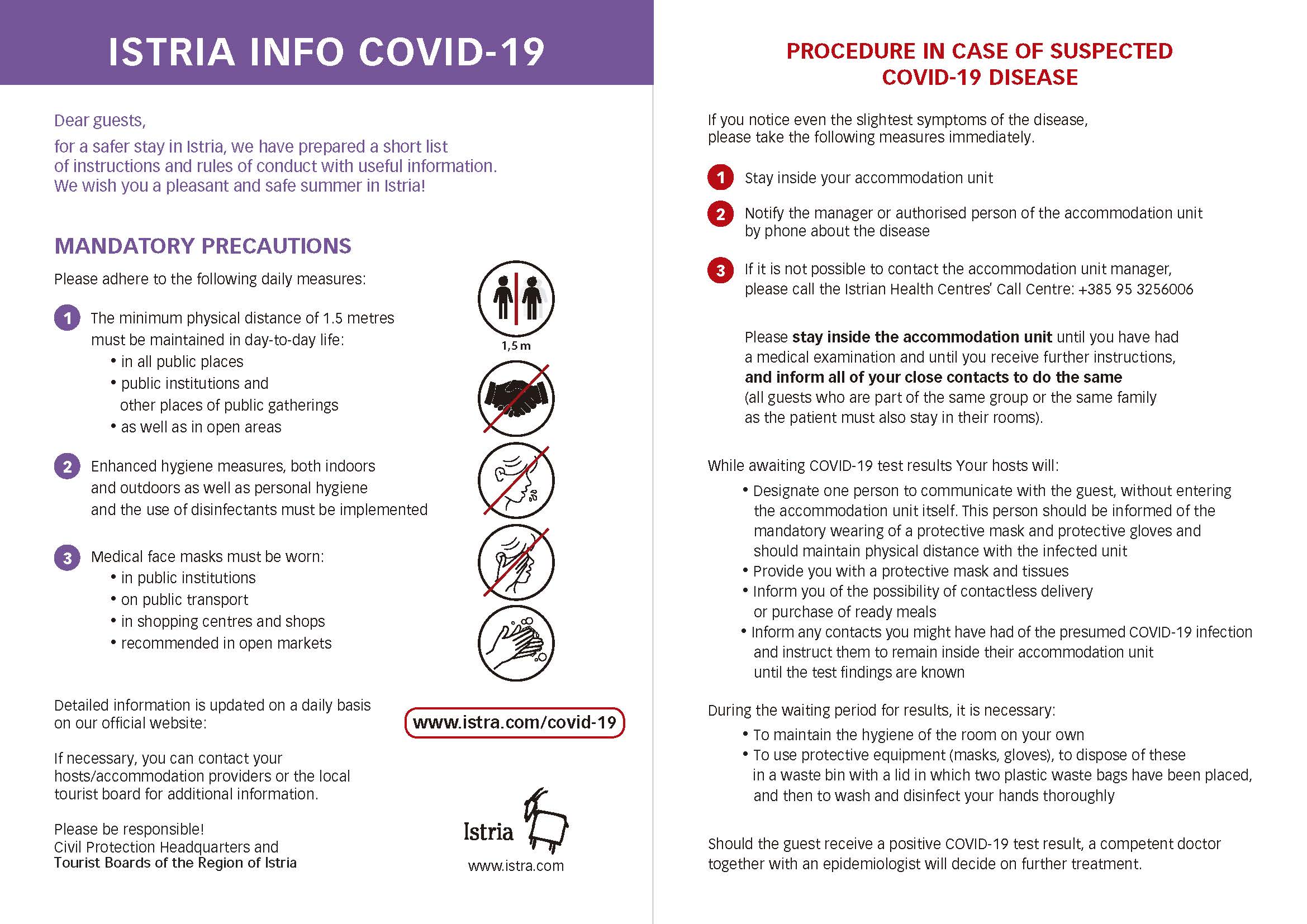
All you need to know about traveling to Rovinj can be found on our dedicated TC page.
Follow the latest travel updates and COVID-19 news from Croatia HERE.
For more on travel in Croatia, follow TCN's dedicated page.
Croatia's Coronavirus Update: 735 New Cases, 30 Deaths, 1,531 Recoveries
ZAGREB, 6 April, 2021 - Over the past 24 hours, Croatia has registered 735 new cases of the coronavirus infection and 30 deaths, and the number of active cases currently stands at 11,028, the national COVID-19 crisis management team said on Tuesday.
There are 1,713 COVID patients in hospitals, 155 of whom are on ventilators. In the last 24 hours, 1,531 people have recovered and 6,333 have been tested.
Since 25 February 2020, when Croatia registered its first case, 280,899 people have contracted coronavirus, 263,758 have recovered and 6,113 have died.
To date, a total of 1,589,987 people have been tested.
There are currently 26,592 people in self-isolation.
As of 5 April, 524,724 doses of vaccine have been used, and 426,310 people have been vaccinated, 326,247 of whom have received the first dose and 98,414 of whom have received both doses. For 1,649 people, there is no data on which dose they have received.
For more about COVID-19 in Croatia, follow TCN's dedicated page.
Croatia logs 1,376 new coronavirus cases, 33 deaths
April 4, 2021- In the past 24 hours, 1,376 new coronavirus cases and 33 COVID deaths have been registered in Croatia, the national COVID-19 response team said on Sunday.
Currently, there are 13,432 active cases, including 1,511 hospitalized patients, of whom 158 are on ventilators, while 33,342 people are self-isolating.
To date, Croatia has registered 280,026 coronavirus cases, 6,058 deaths, and 260,536 recoveries, including 1,664 in the past 24 hours.
To date, 1,582,500 people have been tested for the virus, including 6,580 in the past 24 hours, and 425,971 people have been vaccinated against it, including 98,322 with both doses. For 1,648 people, there is no information as to whether they have received one or both doses.
For more about Covid-19 in Croatia, follow TCN's dedicated page.
Highlights of the Week: 5 Big Events in Croatia from March 29 to April 4, 2021
April 4, 2021 - From new epidemiological measures imposed due to the increase in COVID-19 infections to the arrival of Ryanair, here are TCN's five highlights of the week, recapping the big events in Croatia from March 29 to April 4, 2021.
At the end of March, the fight against the pandemic was in its final stages, taking into account the government's efforts to promote the return of the tourist season, the reopening of business in the country, and the announcement of mass vaccinations in Zagreb after Easter. Despite this, the novel coronavirus has once again warned that its presence continues to threaten the population, and this has since manifested in the increase in cases across the country. On the other hand, sporting and cultural events have also stood out as we entered a new month this week.
Croatia U-21 reaches the EURO Tournament Quarterfinals
The eyes were not only all firmly on the senior team, who, after starting the qualifying process with an away loss against Slovenia, got back on track with six points against Cyprus and Malta in Rijeka. Luka Modric also became the most capped player in the history of the Croatian National Team.
Some good news also came for those who follow the younger generations, as the U-21 team won their ticket to the quarter-finals of the EURO tournament in a dramatic fashion. Those led by Igor Biscan failed to win the match, but a Bradaric goal in injury time allowed Croatia to climb to second place, thanks to the other teams' results and goal difference.
Now, the little Vatreni will have to face Spain on May 31.

Koper, Slovenia (Credit: PIXSELL)
Ryanair announces flights to Croatia
After several years in which the Zagreb International Airport was in deficit in terms of both airlines and low-cost flights, it finally reached an agreement with the well-known Irish low-cost company Ryanair. This agreement was announced through a virtual press conference, in which it was detailed that the capital of Croatia will now be connected to European cities such as Paris, Brussels, Dortmund, Frankfurt, Karlsruhe, Memmingen, Milan, Rome, Podgorica, Oslo, Gothenburg, and London.
Zagreb wasn't the only city to rejoice with this news, as the airline also confirmed 17 new flights to Zadar International Airport in a separate conference, and passengers will be able to choose from a wide variety of European destinations from July 2021. While many still believe this news might affect the future of Croatia Airlines, others including the company itself assure that the regional base establishment of the popular airline in Zagreb will not only create more jobs but also transform the capital's tourism.
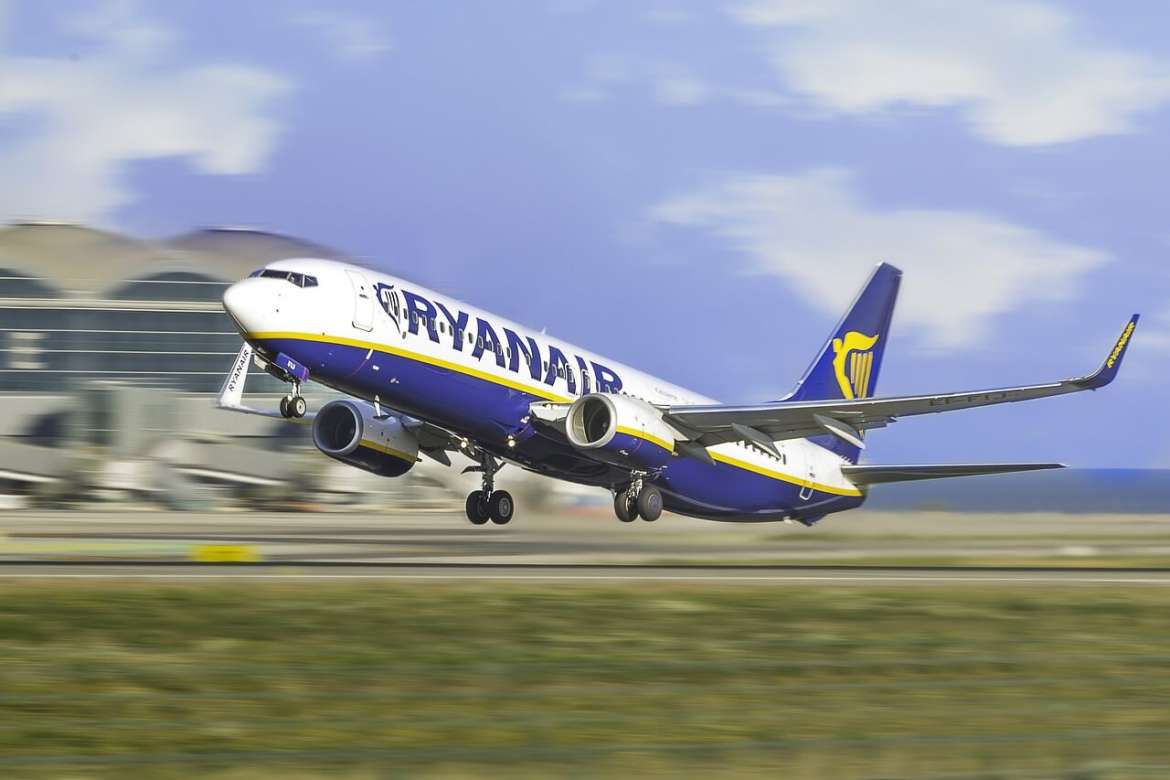
Credits: Pixabay
The Prime Minister reveals the National Recovery Plan
After a cabinet meeting which was held last Thursday, PM Andrej Plenkovic announced through a press conference all the details surrounding the National Recovery and Resilience Plan, which aims to reform and transform the country in regard to several different issues such as healthcare, employment, education, science and research, infrastructure, and more. The estimated investment would stand at 18 million kuna and the objective is to carry out these reforms within five years, more precisely between 2021 and 2026.
Plenkovic added that the plan consists of modernising scientific research and educational systems, increasing the quality of the healthcare and pension systems, improving employability through a more efficient programme, and carrying out the reconstruction and structural renovation of numerous homes and buildings in the country, in such a way that they are not only better prepared in case of natural disasters, but that they're also more adapted to the most recent demands for energy efficiency.
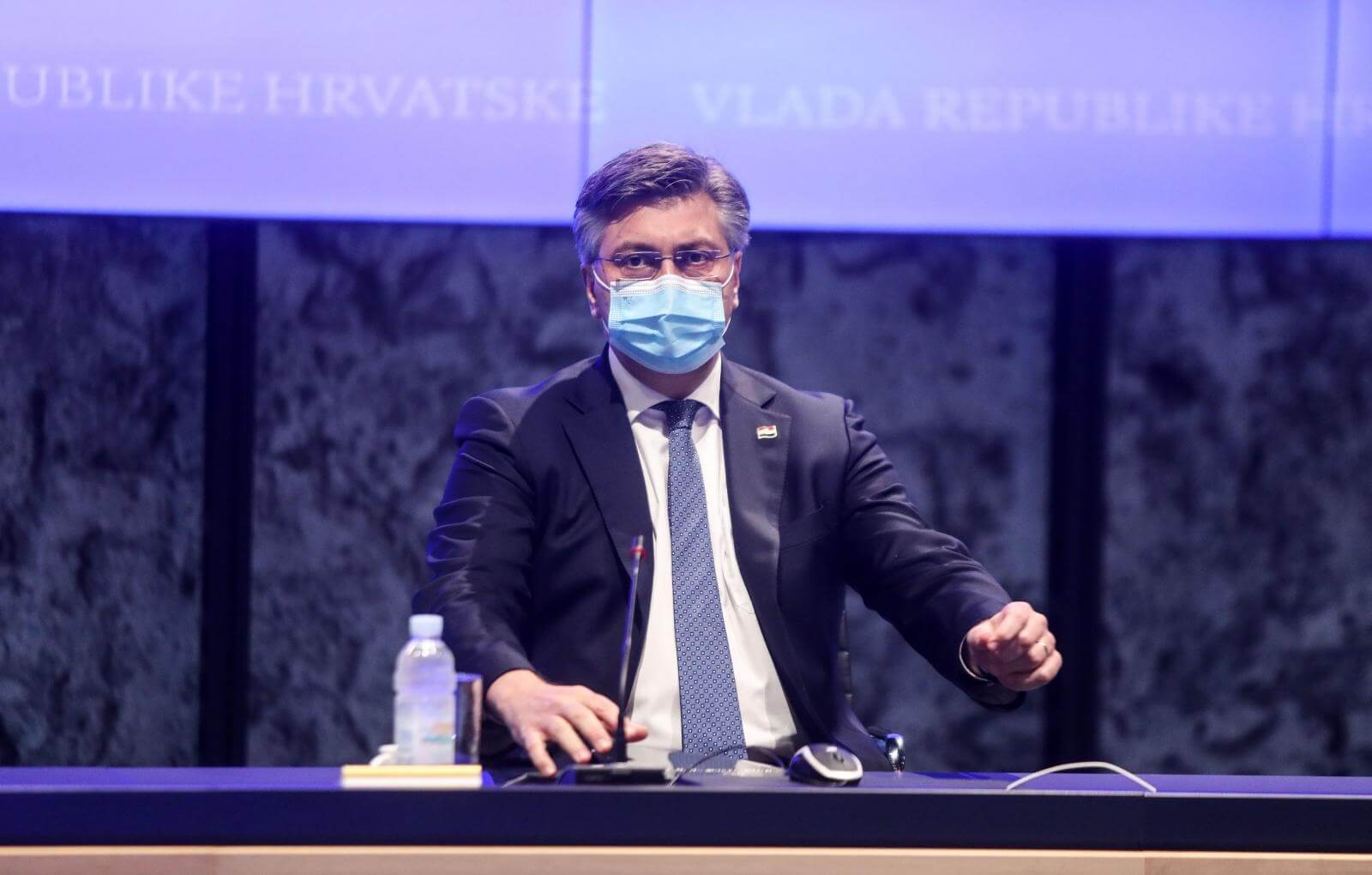
Zagreb (Credits: PIXSELL)
The traditional Za Krizen Procession was held on Jelsa
Despite the reduced capacity of followers and pilgrims this year due to the coronavirus pandemic, the island of Hvar celebrated its 2021 edition of its traditional Za Krizen (Behind the Cross) procession in the town of Jelsa, inscribed as intangible UNESCO heritage since 2009. TCN covered an event that usually gathers thousands of people around the island as they follow the carriers, but this year had to settle with only the participants and few witnesses in the streets.
The overnight processions were held in the towns of Jelsa, Pitve, Vrisnik, Svirce, Vrbanj, and Vrboska. The event started simultaneously in the six towns at 22:00 pm as the habitants have done for centuries, and ended at the main square.
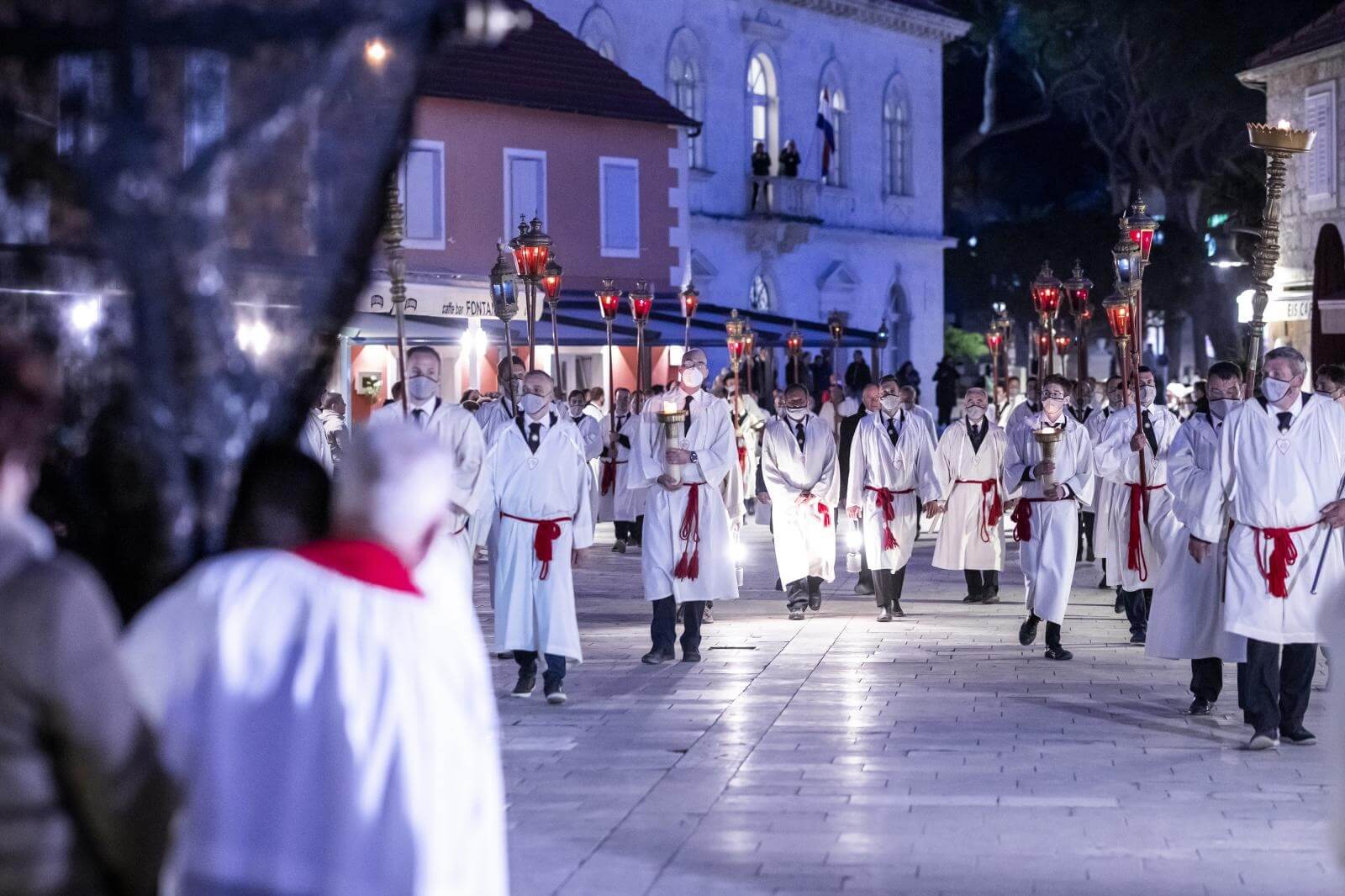
Jelsa (Credit: PIXSELL)
The measures against COVID-19 are tightened due to the large increase in cases
A month ago, all the cafes, bars, and restaurants in the country were reopened, after many weeks without serving their loyal customers, as an extreme measure to combat the virus. The condition was to serve only outdoors on the terraces and with a limited capacity. The streets were filled with life and joy again. However, one month later, the numbers have dramatically increased and although it is unlikely that a complete lockdown will be imposed again, the government has announced that new measures will take place in order to reduce the infections and it will last until 15 April, before being reviewed again.
In Split-Dalmatia County, for instance, which has seen a big increase in new infections, the mandatory wearing of face masks at outdoor venues with an increased flow of people will be introduced, as will a ban on the sale of alcohol from 8 pm to 6 am. The work of cafes will be restricted until 8 pm, and it will be possible to serve food and drinks only in the open. Foreign language schools will switch to online classes again.
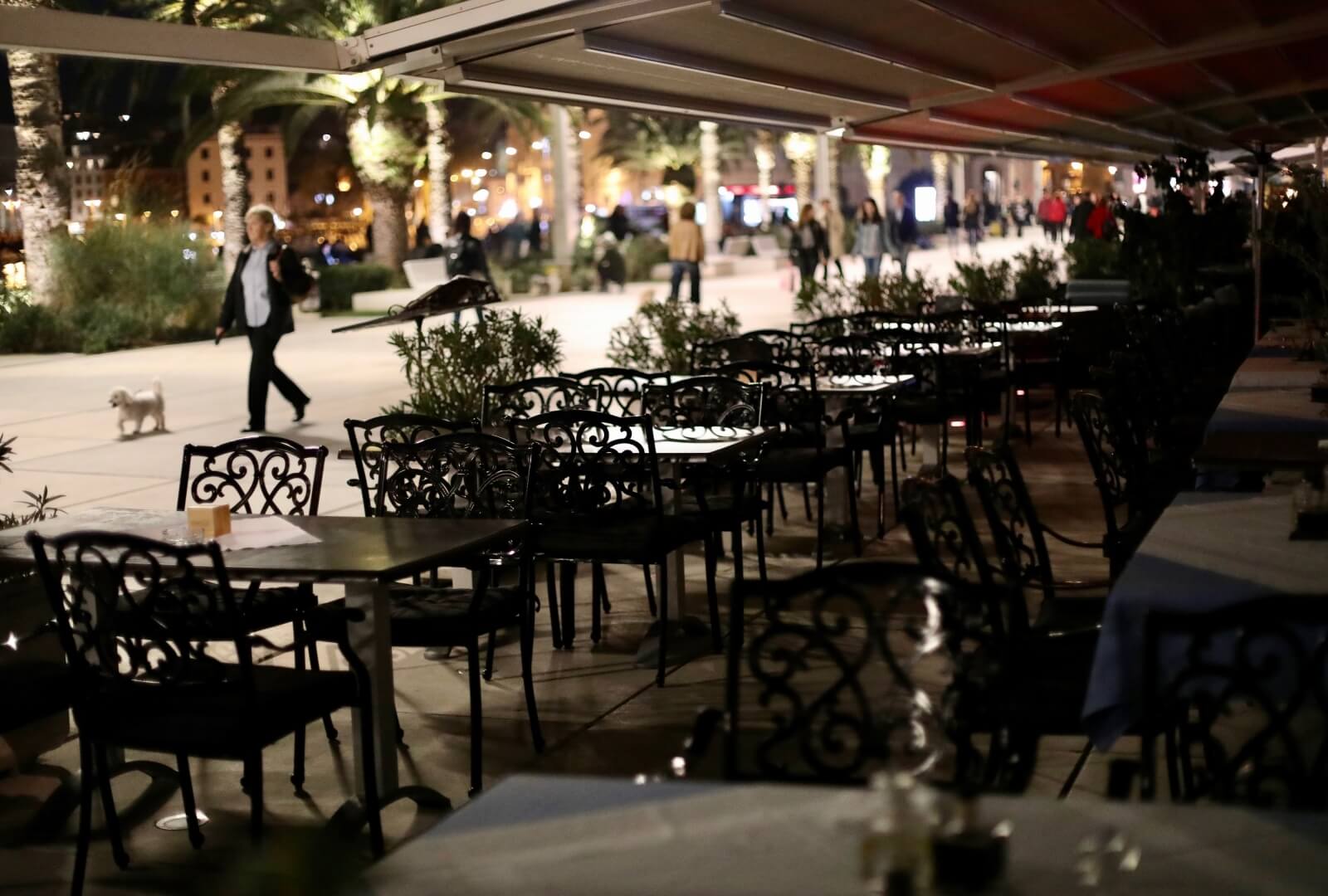
Split (Credit: PIXSELL)
From Monday to Sunday, we list five events featured on the front pages of Croatia's news portals.
To follow all news from Croatia, subscribe to our newsletter.
Croatia Reports 2,234 New Coronavirus Cases, 29 Dead
April 3, 2021 - In the past 24 hours, 2,234 new coronavirus cases and 29 COVID deaths have been registered in Croatia, the national COVID-19 response team said on Saturday.
The number of active cases is 13,753, including 1,469 hospitalized patients, of whom 158 are on ventilators, while 34,965 people are self-isolating.
To date, Croatia has registered 278,650 coronavirus cases, 6,025 deaths, and 258,872 recoveries, including 1,563 in the past 24 hours.
To date, 1,575,650 people have been tested for the virus, including 7,623 in the past 24 hours, and 419,431 have been vaccinated against it, including 96,047 with both doses. For 1,634 people, there is no information as to whether they have received one or both doses.
For more about Covid-19 in Croatia, follow TCN's dedicated page.
COVID Crisis Has Cost Us €4.3Bn So Far, Says FinMin
April 3, 2021 - The financial effect of the COVID-19 crisis on the state budget is over HRK 32 billion, according to Finance Minister Zdravko Marić.
The drop in revenues accounts for about HRK 13 billion of that amount, including measures to write off taxes and contributions, while direct expenditures and outlays due to the pandemic account for over HRK 19 billion, Marić said.
Job retention measures account for the bulk of direct expenditures, with HRK 10 billion paid to date, while about HRK 2 billion has been set aside for additional healthcare expenses. Most of the rest pertains to liquidity maintenance budgetary transfers to the Croatian Health Insurance Fund and local government, and to the Croatian Bank for Reconstruction and Development and the HAMAG agency for SMEs for their credit lines.
"We have utilized EU grants in the amount of HRK 5.9 billion, most of which from the REACT-EU package for job retention," Marić said.
However, he added, when the total financial effect of the COVID crisis is taken into account, "it's clear that so far the bulk of the cost has been at the expense of the state budget, i.e. borrowing. That affected the public debt-to-GDP ratio, which reached 89.1% at the end of 2020."
Tax revenues and contributions are coming into the state budget as expected, he said. "Such trends give us a certain optimism that the whole economy is continually adapting to the new situation and that the planned economic recovery, and thereby the consolidation of public finance, will not be significantly undermined."
Still, the continuation of the COVID crisis additionally accentuates uncertainty, notably regarding budget expenditures, Marić said, adding that he was primarily referring to ensuring additional funds for job retention and for the problems in healthcare.
He said it was also necessary to find the money for a 4% base pay rise for public sector workers and that he hoped budget beneficiaries would cut costs sufficiently to that end.
To read more about news in Croatia, follow TCN's dedicated page.
Croatia Logs 2,362 COVID Cases, 29 Deaths
ZAGREB, 2 April, 2021 - In the past 24 hours 2,362 new coronavirus cases and 29 COVID deaths have been registered in Croatia, the national COVID-19 response team said on Friday.
The number of active cases is 13,111, including 1,464 hospitalised patients, of whom 153 are on ventilators, while 34,878 people are self-isolating.
Croatia has registered 276,416 coronavirus cases to date as well as 5,996 COVID deaths and 276,416 recoveries, including 1,670 in the past 24 hours.
To date 1,568,027 people have been tested for the virus, including 8,697 in the past 24 hours, and 404,518 have been vaccinated, including 92,380 with both doses. For 1,519 people there is no information as to whether they have received one or two doses.
For more about Covid-19 in Croatia, follow TCN's dedicated page.
Croatia Reports 2,422 New Coronavirus Cases, 20 Deaths
ZAGREB, 1 April, 2021 - In the last 24 hours 2,422 new coronavirus cases have been registered in Croatia, with the share of infected persons among those tested reaching 25.56%, Health Minister Vili Beroš told a cabinet meeting on Thursday.
Currently, 33,376 people are self-isolating and 1,337 are receiving hospital treatment, including 144 who are on ventilators.
"A total of 6,832 persons have been infected this week alone, and compared with the start of last month, the number of patients on ventilators has nearly doubled and the number of hospital patients has increased by 60%," Beroš said.
By Wednesday, 2,632 samples have been sent for sequencing and the results show that the British variant of the coronavirus was detected in 67% of them.
Croatia has so far received 540,845 vaccine doses, and by 30 March 463,003 doses have been administered, or 86% of the doses received.
Beroš said that additional intensive care units are being reopened in the Dubrava Hospital in Zagreb, as well as in other hospitals as necessary.
He called on the citizens to refrain from large gatherings during the Easter holidays, to maintain a safe distance, wear masks and air out their rooms.
In the last 24 hours, there have been 20 COVID-related deaths bringing the death toll to 5,967.
The head of the national coronavirus response team, Interior Minister Davor Božinović, spoke of the measures to contain the coronavirus, which are being tightened until 15 April.
"Given the fact that the epidemiological situation is not the same everywhere, the national response team is introducing the new measures for the large part at the proposal of county teams," Božinović said.
Over the next two weeks, indoor training will be forbidden at national level, except for top athletes, and the work of indoor play groups will be restricted.
As for the border crossing regime, for entry into Croatia fast antigen tests, recognised by EU member states, and vaccination certificates will be recognised.
For more about COVID-19 in Croatia, follow TCN's dedicated page.
Tourism Minister Nikolina Brnjac: We Are Working On Clear Criteria For Entry Into Croatia
ZAGREB, 31 March, 2021 - Tourism and Sports Minister Nikolina Brnjac said on Wednesday that clear entry criteria for Croatia were being prepared according to European Commission recommendations for travel across borders, which will probably be - recovered from COVID-19, vaccination or a PCR or antigen test.
Asked by reporters ahead of an inner cabinet meeting what she thinks of the measures by the national COVID response team and how the deteriorated epidemiological situation is being reflected on tourism and bookings, Minister Brnjac said that as soon as the European Commission released its draft recommendations on travel restrictions, Croatia immediately started working on clear criteria for entry into Croatia.
The Commission recently proposed a regulation on creating a Digital Green Certificate which should enable safe travel within the European Union during the pandemic. The certificate should be proof that a person has been vaccinated against COVID-19, has received a negative test result or recovered from COVID-19.
Brnjac added that this requires technical preparations which are already being worked on in the Interior Ministry and the Croatian Institute for Public Health so that, as soon as the regulation enters into force, it can be integrated in the system.
That is important because of the epidemiological situation, which is why at the end of 2020 we launched safe protocols and the "Safe stay in Croatia" label, she said.
"We have previously warned that the most important thing is for Croatia to be in the 'green' zone and we asked local tourist boards to recommend testing stations for tourists... We need to achieve flow of both tourists and tests," said Brnjac.
Asked how the current situation is being reflected on bookings, Brnjac said that she is in constant contact with partners on the markets and that there has been an increase in enquiries, mostly about whether Croatia is in the "green" and about the vaccination of tourism workers which, she added, could be conducted in May and June as "vaccines are coming."
"There are fewer bookings than in previous years, even for Easter, but more are expected... from the end of May and in June, for which there is more interest by tourists, and that is why we should have the best epidemiological situation possible," she said.
Asked about aid for travel agencies which are required to refund deposits for cancelled travel arrangements, yet don't have the funds to do so, Brnjac said "they can get loans and return what they owe, with state guarantees for up to 100 per cent of the loans that are earmarked for SMEs and 90% for (those earmarked for) large companies."
For more about politics in Croatia, follow TCN's dedicated page.


